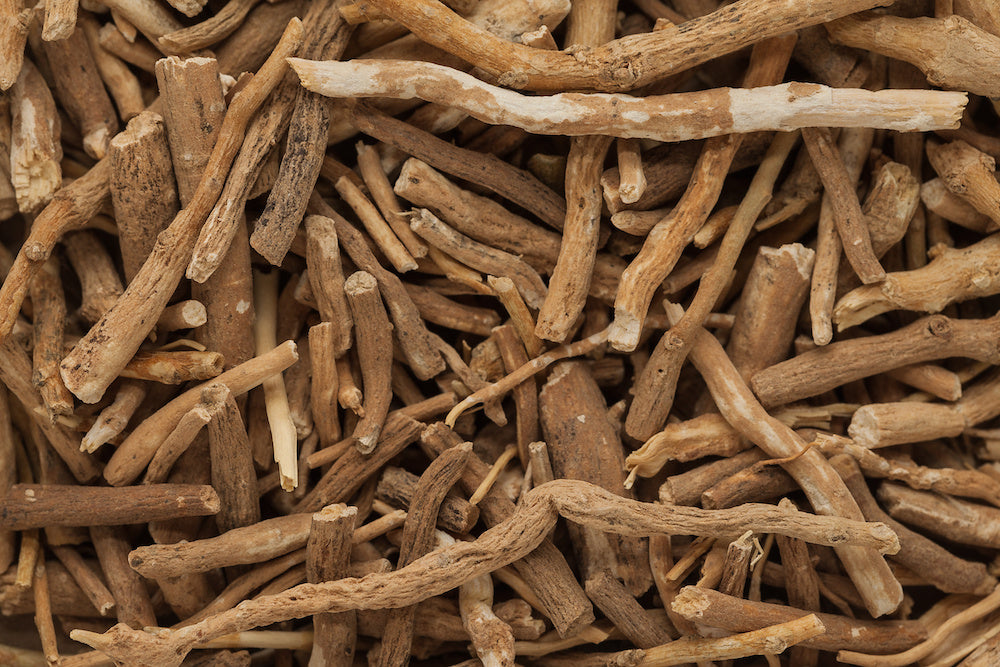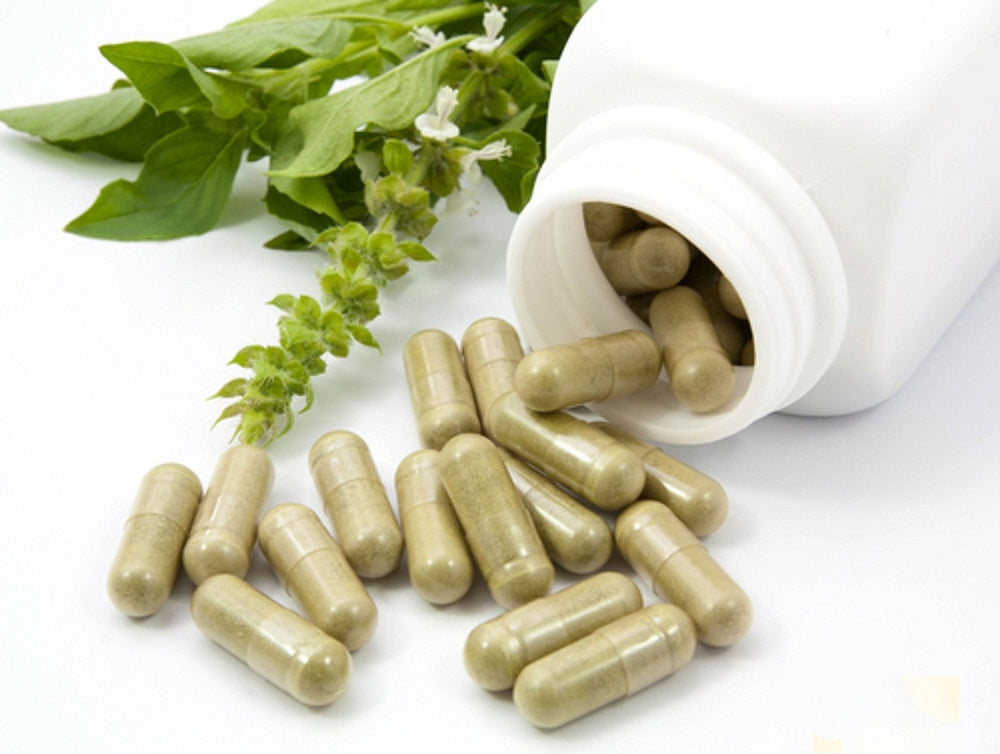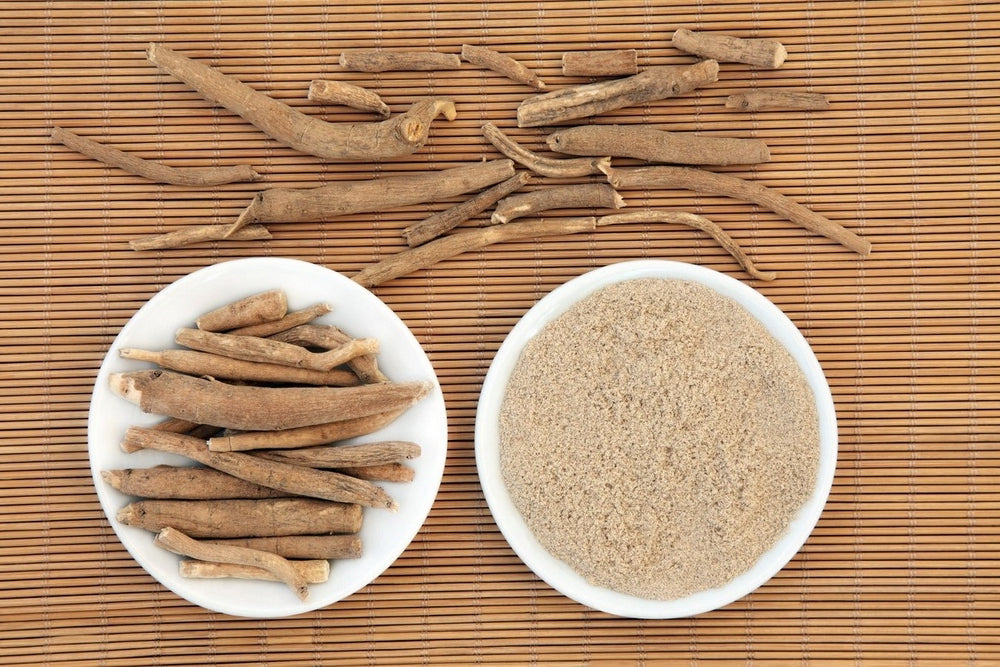
Do you ever stop to wonder just how people got along without all the benefits of modern medicine? One only needs to stroll into their local market or pharmacist to instantly have access to a vast array of over the counter medicines that can help you cope with everything from allergies to headaches and even the common cold. We didn’t always have pills to turn to, though, and consistent use of OTC medicines isn’t always the best for our bodies.
What did the people who inhabited the earth hundreds or even thousands of years ago do when their health took a turn for the worse? More to the point, how did they provide their bodies with essential compounds for improving health? There were no multi-vitamins or supplement stores to visit. The answer, though it may be obvious, has a surprising depth to it: they turned to the bounty of the earth, of course, and its natural herbs and plants. This led to the development of many styles of traditional medicine based on herbal remedies all around the world.
Just because medicine has moved on doesn’t mean that all those ancient remedies are suddenly worthless, though. As a matter of fact, now more than ever, we can benefit from rediscovering what our ancestors already knew: the earth is bountiful and produces much of what we need for good health. One of the best examples of that is the plant called ashwagandha, sometimes known as “Indian ginseng” as it is related to that species. With a prominent role in the Ayurvedic medicine from the Indian subcontinent, using ashwagandha as a supplement can have tremendous benefits for your body. Before we discuss what we all stand to gain from re-embracing this plant, though, you might be wondering: what exactly is ashwagandha?

Ashwagandha goes by many names besides “Indian Ginseng.” Some call it a “winter cherry,” for example. Scientists refer to it as Withania somniferia. It belongs to the nightshade family of plants, so it shares ancestors with some other plants which are very toxic, and some which are quite delicious — like potatoes, which are a distant relative. Ashwagandha, its most common name, has quite an interesting meaning! In its original Sanskrit usage, this word means “the smell of a horse.” When pulled from the ground, the roots of the plant have traditionally been said to possess the pungent aroma of equine perspiration.
While you likely haven’t seen ashwagandha growing in the wild around your neighbourhood, it’s a hardy species that grows well in many places around the world. It has a natural resilience to both very hot and even very cold temperatures. That explains why our ancestors would have used it extensively — it was easy to grow and use in the arid climate of India. It can even survive in higher altitudes, making this resilient plant an excellent natural remedy to reach for no matter where you live.
How do you consume ashwagandha? The good news is that science and traditional medicine can combine in partnership to extract the most benefits from natural substances like Indian ginseng. Today, one of the most common forms you’ll find ashwagandha in is an extract formulation called KSM-66. This is the result of years of research and is a balanced extract crafted from the roots of the ashwagandha plant. In many studies over the years, some of which we’ll discuss soon, the KSM-66 extract has proven to have many beneficial effects when taken in doses ranging from about 500mg to 1000mg.
Before the creation of KSM-66, though, the benefits of ashwagandha were already known. How long have people been using this plant? The length of time its advantages have been known may surprise you. The humble “winter cherry” has been a cornerstone of Indian Ayurvedic medicine for centuries.

What exactly is Ayurvedic medicine? Understanding this is also important to understanding just how deeply rooted many of the benefits we’ll discuss are, as well as lending valuable insight into the benefit of traditional medicines. At its core, Ayurveda is an entire approach to the body, the process of determining ailments, and treating them — it’s a wholly Indian system of medicine, and it’s been practised for more than five millennia.
While we won’t dive into all the details of how the Ayurveda works, what is important to know is that ashwagandha is part of a category of substances called “rayasanas.” These are elements with the ability to strengthen the body and enhance the mind. They form a crucial part of the Ayurvedic approach to medicine, and ashwagandha is one of the most fundamental rayasanas.
Though Indians 5000 years ago might not have known about the plant’s richness in healthful alkaloids, saponins, and steroidal lactones, they did understand it could offer humans a wide array of benefits. Its fundamental anti-bacterial action undoubtedly helped to prevent infection in an age before antibiotics. Historically documented uses spanned many categories, and it was often given to those on the mend from illnesses due to the many effects we’ll soon discuss.
This is a broad overview of what Ayurvedic medicine is and why ashwagandha is important, but it’s a good foundation from which to build. Now, what about all the compounds found inside ashwagandha — and KSM-66 by extension — we mentioned? What are they good at accomplishing inside the body? Let’s start by looking at what it can offer to athletes.

Ashwagandha’s fitness improving abilities were already known to practitioners of Ayurvedic medicine, who believed it had the property of enhancing one’s “bala.” In other words, supplementing your body with this plant allows you to increase your level of strength. Of course, it doesn’t happen just by itself; you need to be working out while you’re taking it, too. The plant is what’s known as an adaptogen — that is, it helps the body adapt and overcome stresses by contributing to maintaining the body in its natural state of balance.
When you stress your body with muscle-destroying strength exercises, ashwagandha can help you during the phase in which those muscles repair their fibres for greater strength, resulting in more muscle mass. At the same time, it can reduce the amount of time you spend “in recovery” — that is, being too sore and tired to exercise again. This is where the steroidal compounds found in ashwagandha come in handy; they help boost your body’s systems back up to where they need to be for optimum performance.
There’s one more major area where ashwagandha helps body builders and fitness lovers: hormone production. Studies with KSM-66 conducted in controlled trials demonstrate that the extract can have a naturally boosting effect on testosterone production. Some trial participants experienced an increase of nearly 20% — that’s a huge gain in production when you’re looking for an advantage. Not only does this help you tone your physique the way you want, but it can give you an edge when you want to work out harder, too.
Of course, beyond improving your hormone levels and making muscle development easier, ashwagandha can have other positive effects too. It is a “cardio-protective” substance, which means its compounds can help strengthen the heart over time. Likewise, it also acts as a stimulant for red blood cell production. A larger red cell count means more efficient transportation of oxygen from your lungs to your tissues — and that also means improved athletic performance.
Finally, it even has some limited ability to aid in reducing body fat levels. When you’re cutting calories and trying to lose weight, this could be an excellent supplement to take. You could start shedding the pounds more quickly with the help of an ancient Ayurvedic plant. Of course, for those who want assistance in coping with disorders affecting their bodies, it offers something in that area as well.

A large number of studies, some carried out in the United States and many others around the world, also demonstrate that Ashwagandha can have an impact on our immune systems. In fact, it has extensive abilities to aid in modulating our immune systems, preparing them to fight back against invaders and help us recover from illnesses. This goes back to its adaptogenic qualities, and it’s also yet another reason for its prominence in Ayurvedic medicine. What potential benefits might you see when using a KSM-66 extract of ashwagandha?
Diabetes is an epidemic of growing proportions around the world. Some animal studies indicate that ashwagandha can improve insulin sensitivity in people living with diabetes. Other research in humans involving 1000mg taken daily showed better blood sugar levels when used with fasting. That same research also showed that the participants taking ashwagandha had lower levels of “bad” cholesterol, providing a double-edged sword of potential benefits.
Another physical disorder affecting many people is hypothyroidism — that is, an under-active thyroid. The hormones secreted by this gland are critical for the body’s proper functioning, including regulating your weight. Thyroid problems can be remarkably frustrating to cope with due to their wide range of symptoms. Research undertaken in mice shows that extracts from ashwagandha roots, like KSM-66, triggers the thyroid to produce more of its hormones. As a positive side effect, the liver function also improved due to its surprising ability to act as an anti-oxidant.
Millions of people — many of them older — suffer from debilitating joint pain caused by rheumatism or arthritis. This is one of the primary reasons why individuals turn to using OTC drugs to help manage their pain. Can ashwagandha aid sufferers from these disorders as well? Yes! Its anti-inflammatory properties can lessen arthritis pain, and research bears this out as well. A study from the early 2000s demonstrated that trial patients taking ashwagandha reported substantial short-term relief from their symptoms. More research can help nail down its important properties, but it’s clear it can help here, too.

Finally, let’s touch briefly upon some of the protective effects this incredible plant can have for your body. We’ve mentioned its anti-inflammatory properties, but did you know it can target cancer as well? It’s true — in studies of its effects on cancers of the colon and the other main bodily systems, ashwagandha extract showed some ability to lessen the growth of tumours. It may even help to inhibit the growth of additional cancer cells, though research in that area continues.
It’s important to remember that Ayurvedic medicine is a holistic approach, one that considers the mind as well as the body. Believe it or not, but Indian ginseng extracts aid humans here as well. How? First, the root extract serves the body in reducing its levels of cortisol — otherwise known as the stress hormone. By reducing cortisol levels, you can feel less anxious and stressed.
That’s a big asset in our high-pressure modern lives. In this way, the plant also expresses its anti-depressant abilities. It’s no wonder Ayurvedic medicine often prescribed this plant for many ailments. Its neuroprotective abilities, which promote better brain health, may also help to guard against the risk of developing Alzheimer’s. With so much potency packed into just one plant, it’s worth asking why we don’t hear more about it in modern medicine!
With so much evidence, it should be clear that ashwagandha still has tonnes of benefits to offer to people around the world. Whether you choose to use it to help improve your athletic ability or because you’re searching for a natural way to increase your testosterone levels, this humble plant can help you accomplish that. Of course, its host of other effects, including its anti-oxidant benefits and cholesterol moderation, means it’s well-suited to a wide variety of applications.
With further research still ongoing regarding its anti-cancer properties, the future of ashwagandha and traditional herbal medicine seems brighter than ever. We hope you’ll take a closer look at this wonderful plant. After thousands of years of successful use, it’s hard to find a beneficial track record like that elsewhere!
Despite the benefits we’ve learned about protein powders, not all of them are keto-friendly. Just like any product for people on a low-carb diet, you need to read the label closely to make sure you’re not consuming added carbs and sugars.


Scott Reid
Author
Scott Reid is a 2 x Britain’s Strongest Man U105kg winner (2007 & 2008) and IFSA World's Strongest Man U105kg Competitor. He is an expert in strength and conditioning and also coaches functional nutrition. Scott’s passion for understanding the human body and how to optimise every aspect of it has driven him to study under legends such as Paul Chek. Scott now coaches MMA Athletes, Strongmen and Bodybuilders to name but a few, helping them to implement a well structured diet and become more powerful, explosive versions of themselves.